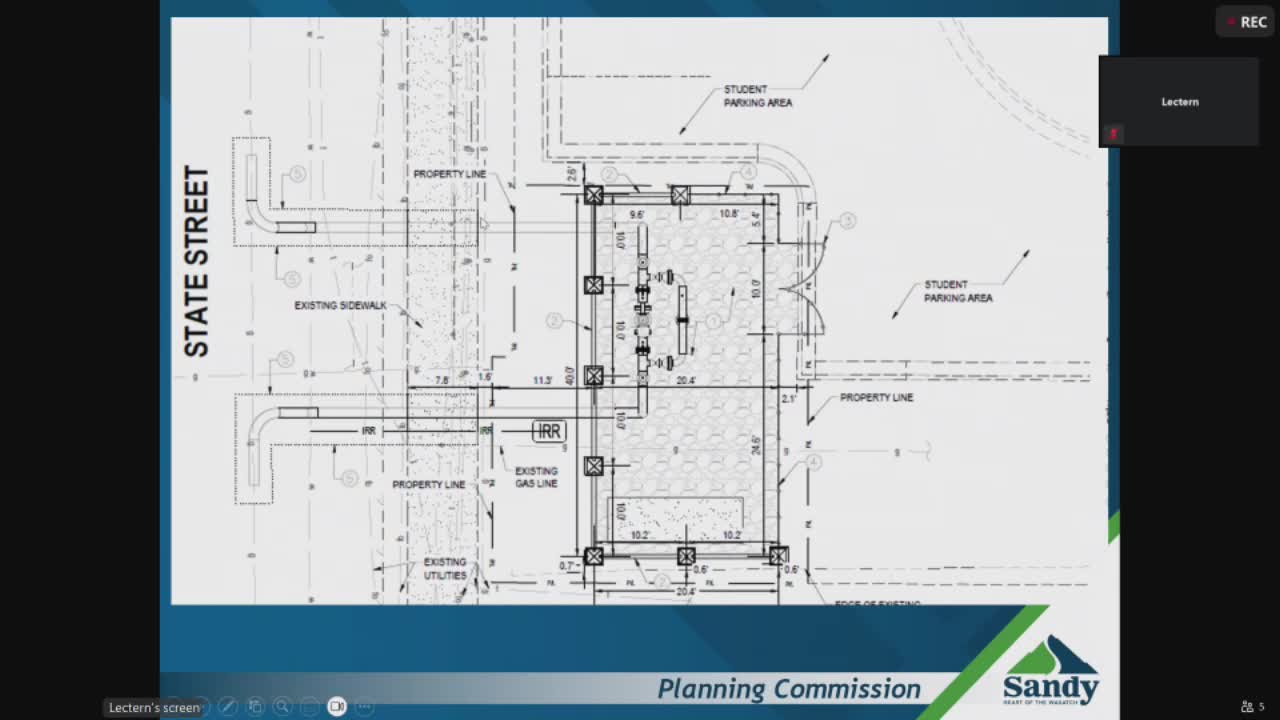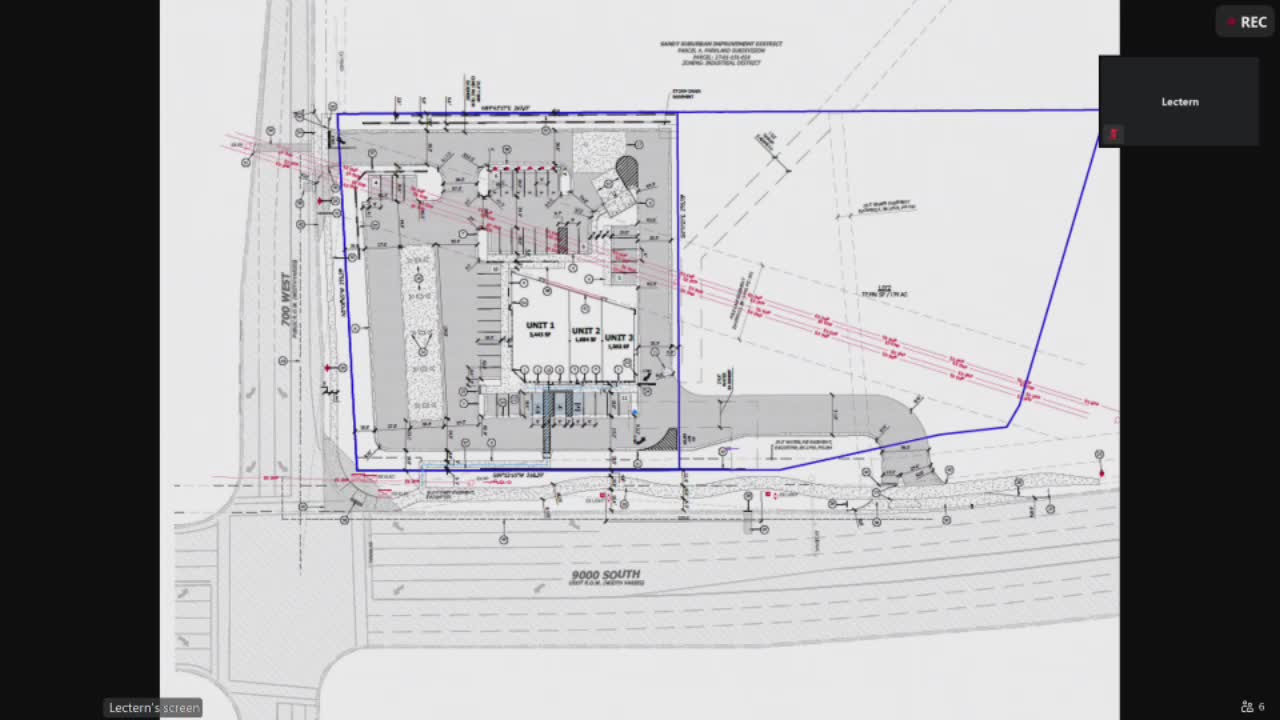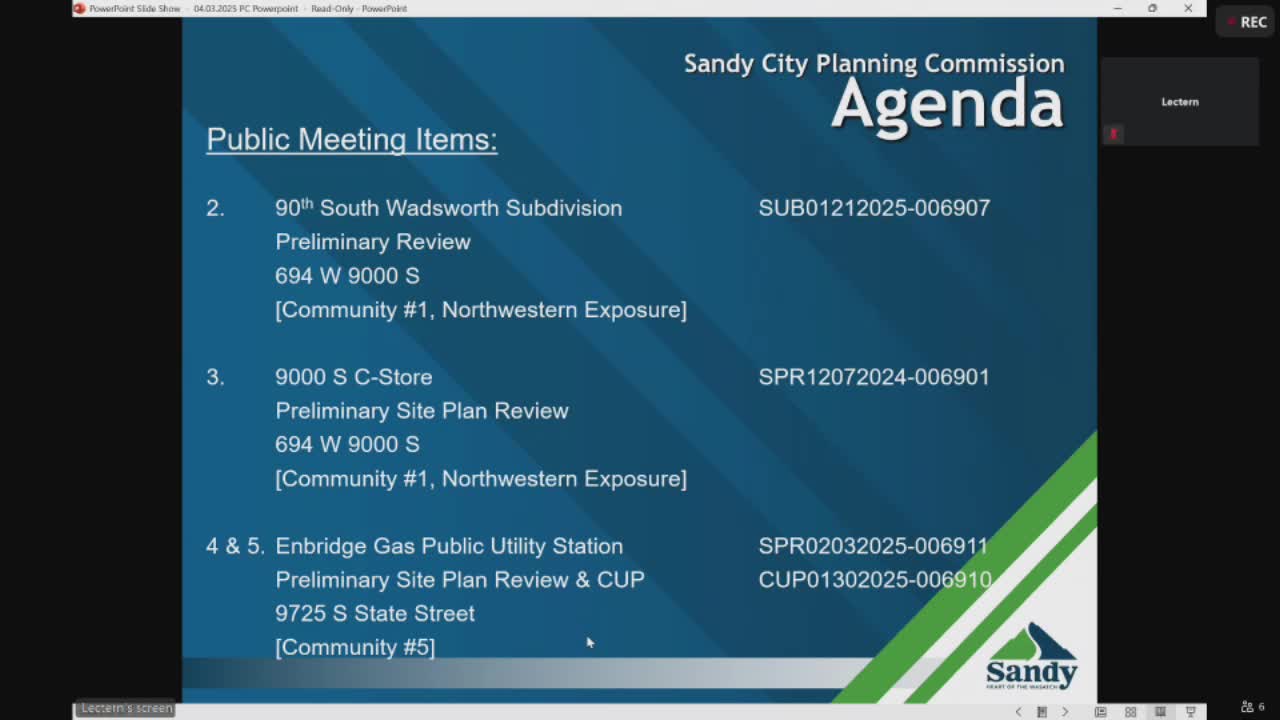Article not found
This article is no longer available. But don't worry—we've gathered other articles that discuss the same topic.

Planning commission clears Enbridge valve station on Canyon School District property with fencing and setback modification

Planning commission approves Ninetieth South convenience‑store site plan with parking and traffic conditions

